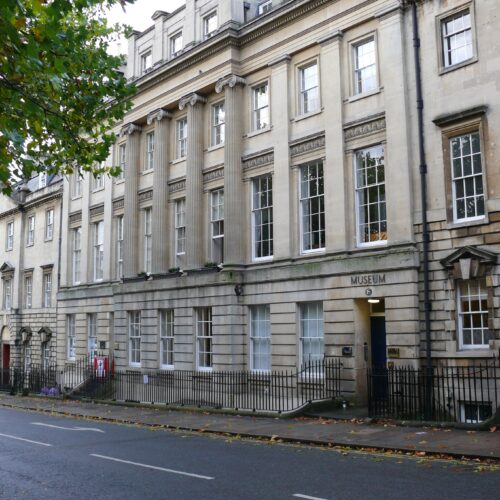

…for the Promotion and Advancement of Science, Literature and Art
Trust deed of the Bath Royal Literary and Scientific Institute (1859)
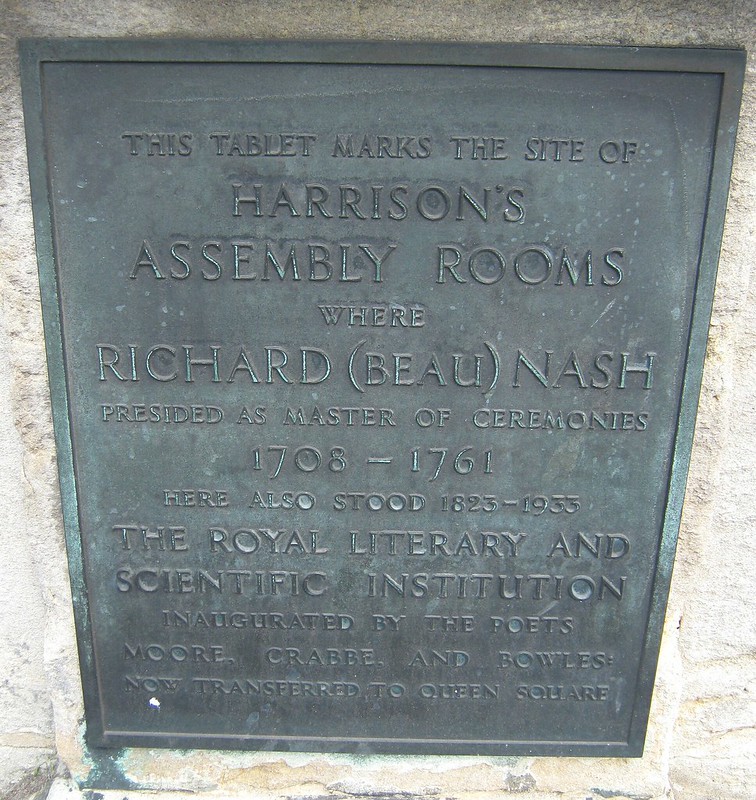
The Bath Royal Literary and Scientific Institute (BRLSI) is an educational charity founded in 1824; a descendant of Bath societies dating back to the 1770s. These included the Bath Agricultural Society (initiated in 1777 ‘for the encouragement of Agriculture, Planting, Manufactures, Commerce, and the Fine Arts’), and the Bath Philosophical Society (formed in 1779 for the discussion of ‘The Arts, Sciences, Natural History, the History of Nations or any Branch of Polite Literature but not Law, Physic, Divinity and Politics’). Originally located near Bath Abbey, the Bath Royal Literary and Scientific Institute is based today in Queen Square, where they host public talks, exhibitions, events, and house an extensive collection of books and objects.
The BRLSI museum and archives have various sections, including collections of fossils, rocks, and natural history specimens, archaeological and historical artefacts. The library includes volumes from Erasmus, Darwin, Lamarck, and Linnaeus. Part of the geology collection comprises that of amateur geologist and renowned fossil collector Charles Moore, purchased after his death in 1881. Many more of its fossils and rocks come from the Institution’s first curator, geologist William Lonsdale, who also assisted Charles Darwin in the identification and study of corals.
Another Darwinian link comes in the form of the collection of naturalist Leonard Jenyns, a friend and close correspondent of Charles Darwin, who in 1869 bequeathed the BRLSI his library, correspondence, and his herbarium. This herbarium, consisting of more eighty volumes of British plants, was the result of a lifetime’s botanical interest. Jenyns was originally intended to be the naturalist accompanying the HMS Beagle in 1831 but was unable to on account of his clerical duties. Instead, he recommended the young Darwin take his place. Though he was said to later regret the decision, he acknowledged ‘no better man could have been chosen’. Jenyn had a close connection with the BRLSI, having founded, in 1855, Bath Natural History and Antiquarian Field Club with Christopher Broome, Charles Moore and Harry Scarth. The group undertook field trips, and held lectures at the Institute. The collections of two of Jenyns’ cofounders, Charles Moore and Christopher Broome, are also housed at the BRLSI.
Main image: © Ad Meskens / Wikimedia Commons
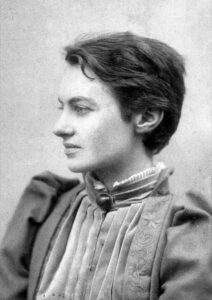
Mary Edith Durham was a writer, artist, and anthropologist, who became well known for her work on Albania. She was […]
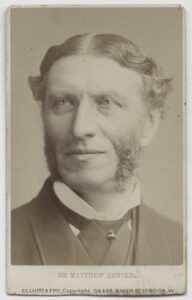
Hath man no second life? Pitch this one high! Sits there no judge in Heaven our sin to see? More […]
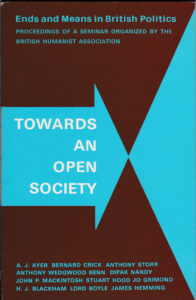
I think that believing in the brotherhood of man is not just a matter of signing these letters, it is […]
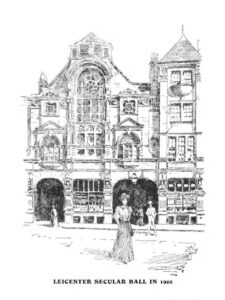
I might fill columns with tales of the debaters, co-operators, socialists, individualists, critics, artists, scientists, clergy and cranks, who, as […]